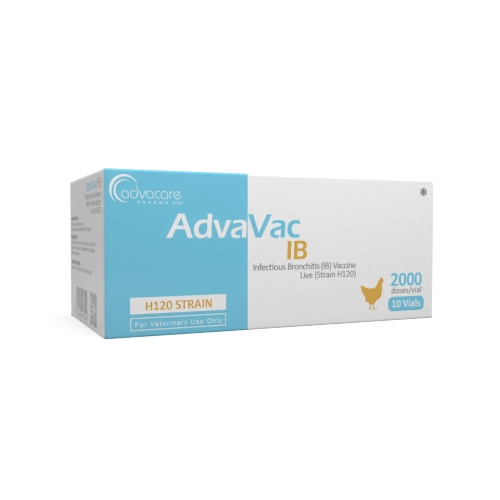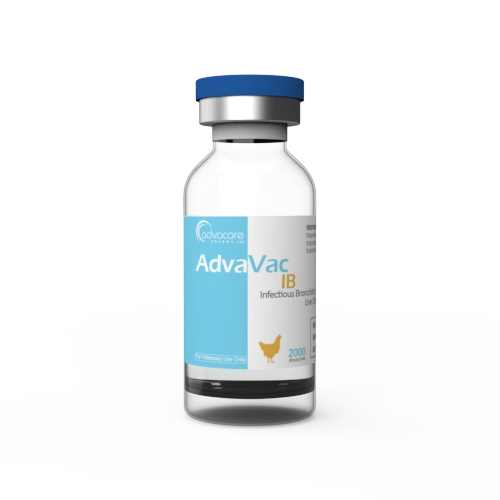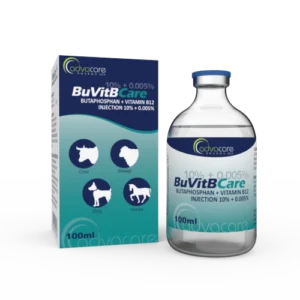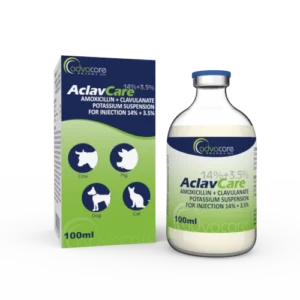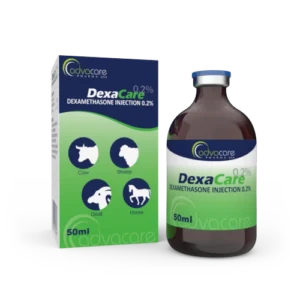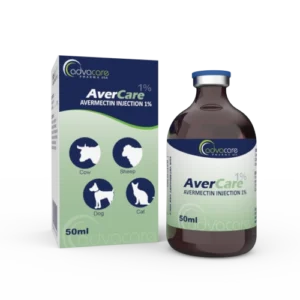What is the Infectious Bronchitis (IB) Vaccine?
Therapeutic Class:
- Vaccine
Target Species:
- Poultry
Active Ingredients: Infectious Bronchitis Virus
Infectious Bronchitis (IB) Vaccine is used to vaccinate poultry against the infectious bronchitis virus (IBV). It can be administered by intraocular drop, drinking water or as a coarse spray. Vaccination helps control or prevent the disease, and the presence of antibodies typically reduces symptoms during infection.
Infectious Bronchitis is highly contagious and can quickly infect an entire flock. The Infectious Bronchitis (IB) Vaccine is not a cure for the infection, but the vaccine can prevent infection.
The Infectious Bronchitis virus is classified in the genus Gammacoronavirus within the family Coronaviridae. Vaccination programs should consider the strains of the virus that are specific to the region.
The Infectious Bronchitis (IB) Vaccine is a live viral vaccine. A small amount of the virus will trigger the animal’s immune system, which allows it to develop antibodies against the virus. This helps reduce the likelihood of infection when the animal comes into contact with specific strains of the virus.
Basil Hygiecare Infectious Bronchitis (IB) Vaccine is available for the H120 and H52 strains of the virus.
Basil Hygiecare is a GMP-certified manufacturer of the Infectious Bronchitis (IB) Vaccine. We offer a comprehensive selection of high-quality veterinary medications available for distribution.
Why choose us as your Infectious Bronchitis (IB) Vaccine manufacturer?
Basil Hygiecare, an American pharmaceutical company, is a manufacturer of the Infectious Bronchitis (IB) Vaccine. We offer a comprehensive range of 250+ veterinary medicines, including the manufacture of more than 20 veterinary vaccines, to meet the market needs of our veterinary distributors, veterinarians and livestock farmers. Over the last 20 years, we have emerged as a leading Infectious Bronchitis (IB) Vaccine manufacturer based on our reputation for supplying high-quality and efficacious veterinary products.
Precautions
Do NOT use Infectious Bronchitis (IB) Vaccine for an animal that:
- has a known allergy or hypersensitivity to any of the ingredients.
- is diseased or has an active Mycoplasma infection, Coccidiosis, or severe parasitic infection.
- is stressed, such as those that are molting or have recently been transported.
- is a chicken intended for breeding.
Exposure to the virus should be avoided immediately after vaccination. Do not put newly vaccinated birds back into contaminated premises.
Reduce exposure to stress during the time of vaccination to encourage a healthy and successful take of the vaccine.
Avoid spilling or splattering the vaccine.
It is recommended to burn any vials, accessories, or unused vaccine before disposing them in accordance with the local regulations.
Uses
What is the Infectious Bronchitis (IB) Vaccine used for?
It’s used to vaccinate poultry against specific strains of the virus that cause Infectious Bronchitis.
What animals can be treated with Infectious Bronchitis (IB) Vaccine?
It’s recommended for poultry, such as chickens.
How is the Infectious Bronchitis (IB) Vaccine used?
This medicine has been manufactured as a live virus, which is intended to be rehydrated and delivered as an intraocular drop, drinking water, or as a coarse spray.
How should Infectious Bronchitis (IB) Vaccine be stored?
This medication should be stored in a dark, dry location, between 2-8°C. The entire contents should be used or disposed of after opening.
Is there a withdrawal period after treatment with Infectious Bronchitis (IB) Vaccine?
The withdrawal period is 21 days for meat.
Dosage
The vaccine should be given to chicks from 1-day old. A second dose should be administered at 2 weeks. A booster should be given at 16-18 weeks.
Refer to a veterinary doctor or pharmacist for guidelines on dosage.
Side Effects
As with all pharmaceuticals, some unwanted effects can occur from the use of the Infectious Bronchitis (IB) Vaccine.
Common reactions include respiratory symptoms, though the severity varies due to age and level of pre-existing immunity. During the reactionary period, it’s best to keep the bird warm and in a well-ventilated environment.
Severe adverse effects are rare. There have been some reports of anaphylactic shock or allergic reactions. Contact a veterinarian immediately if these effects occur.
For a comprehensive list of all possible side effects of this medication, consult a veterinarian.
